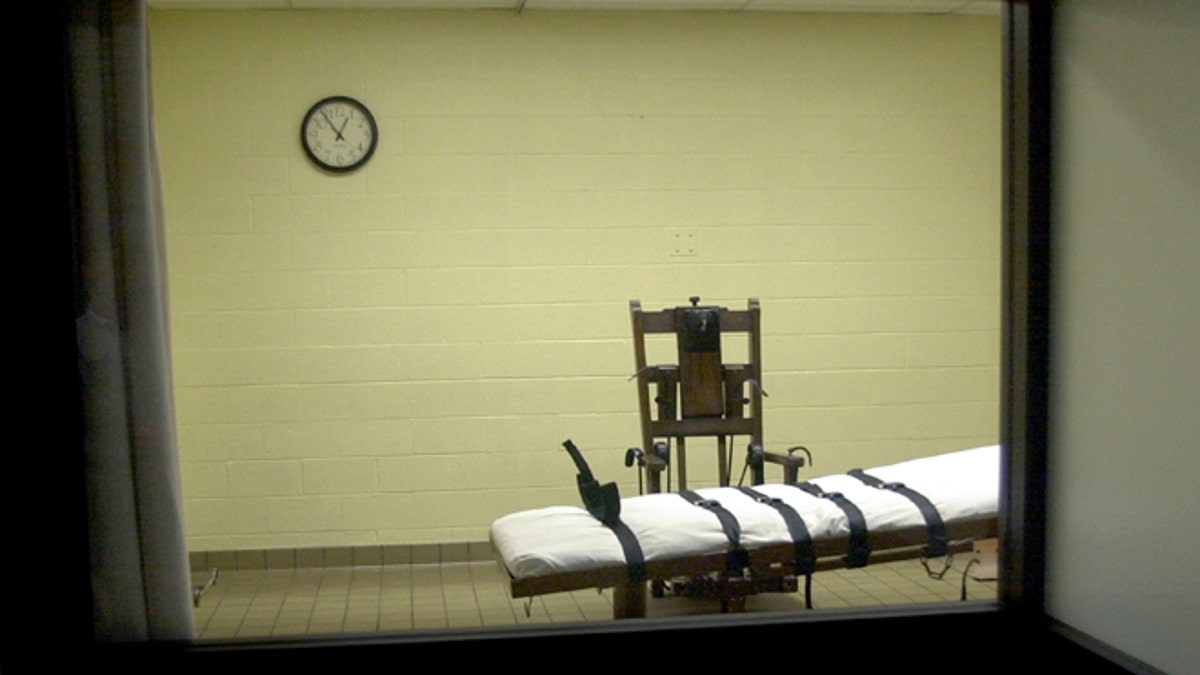
A growing number of conservative Latino religious groups are beginning to shift their position on capital punishment, due in large part to a belief among them that it disproportionately affects minorities.
“Given studies on how the death penalty is meted out, particularly for people of color, if it’s not a level playing field, we need to speak out,” Reverend Gabriel Salguero, founder of the national Latino Evangelical Coalition (NaLEC) told Fox News Latino.
“The needle has moved for Latinos and evangelicals," Salguero said. "Botched executions and advancements in DNA science have awakened us to a moral response."
According to the latest figures from the Bureau of Justice Statistics, Latinos represent a larger portion of those on death row than they did in the past. Half of new Latino death row inmates were from California, bringing their total to 157 inmates, the most in the country. Hispanics now represent 13.5 percent of the U.S. death row population – up from 11 percent in 2000.
A study conducted by University of Nebraska-Lincoln psychology and ethnic studies professor, Cynthia Willis-Esqueda and her colleague, Russ K.E. Espinoza of California State University, Fullerton, found that white jurors were more likely to impose the death penalty in cases where the defendant was Latino and poor.
A study in California found that those who killed whites were over 3 times more likely to be sentenced to death than those who killed blacks and over 4 times more likely than those who killed Latinos.
“There’s an almost impossibly disproportionate number of Latinos incarcerated – a third of the labor force has a criminal record,” Juan Cartagena, president and general counsel of Latino Justice (PRLDEF), told Fox News Latino.
“There’s easy acceptance that the criminal justice system is a racially skewed system,” Cartagena said.
In June, the National Hispanic Leadership Agenda (NHLA), a coalition of 40 prominent Latino organizations, joined several bipartisan groups calling for the end to the death penalty, saying that Latinos are “directly affected by its injustices.”
This follows Pope Francis asking Congress to abolish the death penalty.
In his first visit to the U.S. and his first speech to Congress in September, Pope Francis called on the nation’s representatives to eliminate the death penalty.
“Every life is sacred, every human person is endowed with an inalienable dignity, and society can only benefit from the rehabilitation of those convicted of crimes,” he said. “Recently my brother bishops here in the United States renewed their call for the abolition of the death penalty. Not only do I support them, but I also offer encouragement to all those who are convinced that a just and necessary punishment must never exclude the dimension of hope and the goal of rehabilitation.”
This November, the death penalty will be on the California ballot. Proposition 62 seeks to repeal the statute.
“There’s been a shift, not just attributed to religion, but a heightened understanding of the death penalty and its implicit bias in the criminal justice system,” Thomas Saenz, president and general counsel of MALDEF, and a nationally recognized civil rights attorney, told Fox News Latino.
“The time is right, but it’s a ballot with 17 measures on it. Whether the issue gets the attention it deserves, who knows,” he added.
Salguero said it made sense for clergy to lead the charge on the fight to end the death penalty.
“We’ve been pro-life all along, but what does that mean? If even one innocent person is killed, it’s too many,” Salguero said.
According to the ACLU, since 1973, over 140 people have been released from death row in 26 states because they proved their innocence. Nationally, at least one person is exonerated for every 10 who are executed.
“The gospel teaches us that crime has a place, but God has the last word," Salguero said. "We’re against the ultimate role. We have ministries in prisons. If anyone has a moral platform it is the clergy. I think in my heart of hearts we can do better than executing people."
“Christ was an innocent man who was executed. If there’s a possibility that we execute one innocent person we should have pause.”
